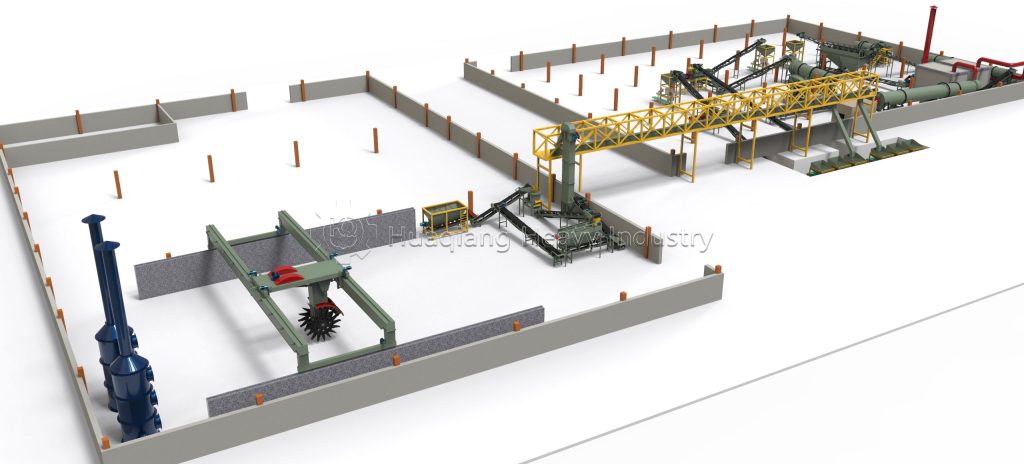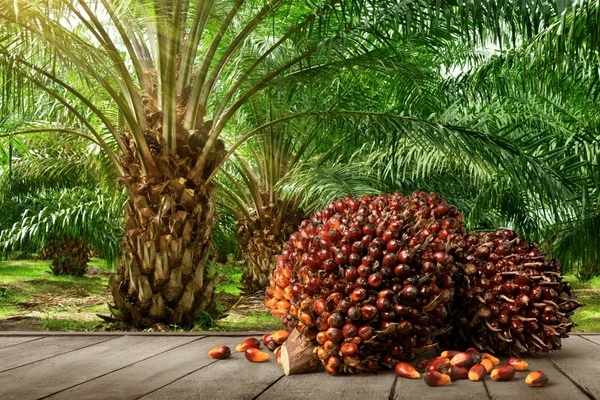In the world of sustainable agriculture, few examples are as compelling as the circular economy approach being pioneered in oil palm cultivation. The innovative practice of converting oil palm waste into valuable organic fertilizer represents a significant step forward in sustainable farming practices that benefit both the environment and agricultural productivity.
This innovative process begins with efficient composting, where specialized fertilizer compost equipment like the large wheel compost turner accelerates decomposition. The compost turning machine ensures proper aeration and mixing, creating ideal conditions for microbial activity. Once matured, the compost undergoes processing through a compost crusher to achieve uniform particle size, followed by precise blending in a compost mixer to create balanced nutrient formulations.
The heart of the organic fertilizer production line is the granulation phase, where advanced organic fertilizer production technology transforms the prepared material into commercial-grade products. The fertilizer granulator, particularly the organic fertilizer granulator, employs sophisticated compost granulation techniques to form consistent, durable pellets. This complete fertilizer compost machine system demonstrates how agricultural waste can be transformed into valuable resources, closing the nutrient loop while reducing environmental impact.

The Potassium Cycle in Oil Palm Cultivation
Oil palm trees have a unique relationship with potassium, requiring substantial amounts of this essential nutrient during their growth and fruiting stages. Remarkably, the trees themselves accumulate potassium in their tissues, particularly in fronds and fruit bunches. This natural accumulation creates an opportunity for nutrient recycling that is both economically and environmentally sound.
Research indicates that oil palm empty fruit bunches (OPEFB) contain approximately 2-3% potassium by dry weight, making them a valuable source of this essential plant nutrient when properly processed into organic fertilizer.
Advantages of Oil Palm Waste as Organic Fertilizer

Resource Recycling
Transforming oil palm waste into compost creates a closed-loop system that significantly reduces agricultural waste while maximizing resource efficiency. This approach addresses waste management challenges while creating value from by-products.
Natural Potassium Source
The potassium accumulated during the tree’s growth cycle is returned to the soil in an organic, readily available form. This natural recycling reduces dependence on synthetic potassium fertilizers and their associated environmental impacts.
Soil Structure Improvement
Organic fertilizer from oil palm waste enhances soil physical properties by increasing porosity, improving water retention capacity, and preventing soil compaction. These improvements create optimal conditions for root development and nutrient uptake.
Comprehensive Nutrition
Beyond potassium, the organic fertilizer provides a balanced mix of nitrogen, phosphorus, and micronutrients essential for healthy oil palm growth. The organic matter also supports beneficial soil microorganisms that contribute to plant health.
Implementation and Global Significance
The practical implementation involves collecting empty fruit bunches and other palm waste, followed by controlled composting processes that typically take 8-12 weeks. The resulting compost is then applied around the base of oil palm trees, completing the nutrient cycle.
This approach has global significance as it offers a sustainable model for other perennial crop systems. It demonstrates how agricultural waste can be transformed into valuable resources while reducing chemical inputs and improving soil health.
The transformation of oil palm waste into organic fertilizer represents a win-win solution for sustainable agriculture. It addresses waste management challenges, reduces fertilizer costs, improves soil health, and creates a more environmentally friendly cultivation system. As global agriculture moves toward more sustainable practices, this circular approach offers valuable insights for creating resilient and productive farming systems worldwide.